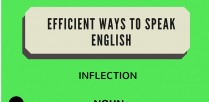Some idioms have an international flavor; this infographic explains ten of them.
To download high-resolution poster click here.
1. “It’s All Greek to Me”
“I can’t understand any of it.”
“Don’t ask me for help with your Math homework. It’s all Greek to me.”
“Please read these directions, it’s all Greek to me.”
2. “All Roads Lead to Rome”
Any path taken leads to the same goal, literally or figuratively. Rome built roads across their vast empire to speed soldiers and commerce, and nearly all of them did, indeed, lead to Rome.
“Take any of the stairs you see to the top, as all roads lead to Rome.”
“As long as you finish, I don’t care how you do it; all roads lead to Rome.”
3. “When in Rome, Do as Romans Do”
To again needle the Italians, this idiom suggests that when you are in an unfamiliar situation, just do what everyone around you is doing. It is often whittled down to “When in Rome.”
“Everyone started jumping into the water, so I thought, ‘When in Rome’.”
“I had no idea where they were headed but I was lost. ‘When in Rome’, huh?”
4. “Pardon My French”
This is an idiom often used when one has cussed (or if one intends to).
“$#%&! Pardon my French; I just dropped a hammer on my foot.”
“Pardon my French, but you are a jackass, complete with ears and a bray.”
5. “Slow Boat to China”
From anywhere English is the native tongue, a boat ride to China will take an amazingly long time. “Slow Boat to China” means that something is slow.
“Traffic was horrible; I was stuck on a slow boat to China.”
“On our vacation to Vermont, we took the slow boat to China to enjoy the fall colors.”
6. “Go Dutch”
When dining and everyone pays for their own order, it’s “going Dutch.” Some think this comes from the Dutch door, which is split in half so that the top and bottom open independently. Others think it’s from the animosity between the Dutch and English during the 17th century.
“We went to dinner but had to go Dutch since my check’s late.”
“I want ice cream but I’m not paying for your 15 scoops. We’ll go Dutch.”
7. “Mexican Standoff”
During a conflict, no party has a clear advantage over another, creating a stalemate. Sources argue the origins but it probably came from the Mexican–American War of the 1850s.
“Neither nation wants to change policies so there is a Mexican standoff.”
“Jill wants pizza, I want burgers; she has the car, I have money. Mexican standoff.”
8. “All the Tea in China”
This idiom refers to value and can be used to show lack of interest. Tea is a popular drink in China, so there’s a heap of it there; also, before modern transportation, anything imported from China would have been quite costly.
“The new stadium will probably cost more than all the tea in China.”
“Bathe your cat? I wouldn’t do that for all the tea in China!”
9. “The Price of Tea in China”
There’s that Chinese tea again, but this idiom indicates that one speaker in the conversation has brought something up that is unrelated to the topic. It can also mean that the speaker simply THINKS that whatever was mentioned is unrelated or unimportant. It is best explained through illustration, so here is an example conversation.
“It’s snowing like the Arctic. No school tomorrow!”
“Umm, tomorrow’s Tuesday.”
“What does that have to do with the price of tea in China?”
“Your class was scheduled for a field trip to the zoo on Tuesday.”
“Oh NO!”
10. “More Holes than Swiss Cheese”
Switzerland’s namesake cheese is known for its holes; the idiom can refer to concepts or physical objects.
“Your plan has more holes than Swiss cheese.”
“I’m freezing! This blanket has more holes than Swiss cheese!”
There aren’t as many of these idioms as, for instance, food idioms, but there are some that the infographic does not cover. Can you think of other idioms that reference the nations?



![Top 10 Grammar Nazi All Time Favorites [infographic]](https://www.grammar.net/wp-content/uploads/2014/11/Top-10-Grammar-Nazi-All-Time-Favorites-Web-308x95.jpg)
![Formal and Informal Style in English [infographic]](https://www.grammar.net/wp-content/uploads/2015/03/Formal-and-Informal-Style-Web-308x95.png)

